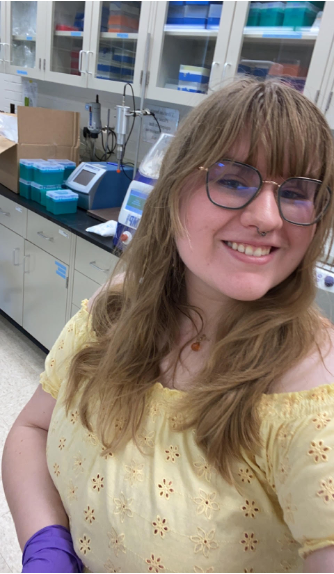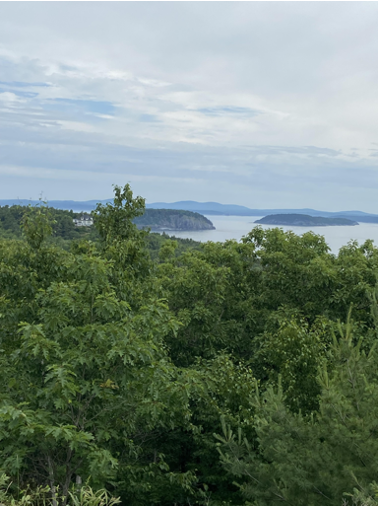Crypto is a real problem. Cryptocurrency? Nope, Cryptosporidium.
Written by Alexis Kirkendall, OneHealth REU program 2022 participant

Hello everyone! My name is Alexis Kirkendall and I am a junior biology major at Heidelberg University in Tiffin, Ohio. I have a fascination with microbes and the huge impacts such small things can make. All of us know this very well as the Covid-19 virus was a microbe that practically shut down the world despite its molecular size. This fascination has led me to the REU ANEW program at the University of Maine. The program is built around the idea of interconnected health, meaning, the health of humans, animals, and the environment are linked. This means that problems that impact any one of those three things impact everything. One health also has a belief in using interdisciplinary approaches to solve these problems. By working together and using varying specialities we can help work toward having a healthy balance between humans, animals, and the environment.
This summer I am working under Dr. Sue Ishaq. Cryptosporidium is a protozoan parasite that can infect both humans and animals. It is a health hazard as it causes gastrointestinal disease and currently has no effective cure. Crypto has a protective outer shell that allows it to live outside a host for long periods of time and makes it tolerant to chemical disinfectants including chlorine. For humans the most common concern is getting crypto from a pool. However, crypto can also spread through animal feces and water sources on farms. On farms crypto can spread via animal to animal, causing a loss in production of varying goods, as well as, general unfavorable animal health.

In order for research to progress onward in curing and managing cryptosporidium it is important to have efficient lab techniques to identify it. This is where the research I am helping with in the Ishaq lab comes in. The goal of our research is to find an efficient and cost effective way to identify cryptosporidium in testing samples. At the moment, there are multiple methods to do this, however, it can take a lot of time and resources to do so. If we can find a way to be able to check a large amount of samples a day for a reasonable amount of money then, research could be improved in the future of testing cryptosporidium.
I would not be able to perform research like this without the REU ANEW program. Furthermore, the program focuses on approaching science with an interdisciplinary approach, something I believe in strongly and want to use in all of my future research. This summer I have been able to learn more about the research process while also developing useful lab techniques. These skills I will be able to use in my future science career. There is more to the REU program than just science. On my weekends I go out and see the beautiful state of Maine by going to places such as Acadia National Park. I would recommend applying to the REU ANEW program to anyone interested in developing as a scientist. The things you can learn and experience here are unmatched.
